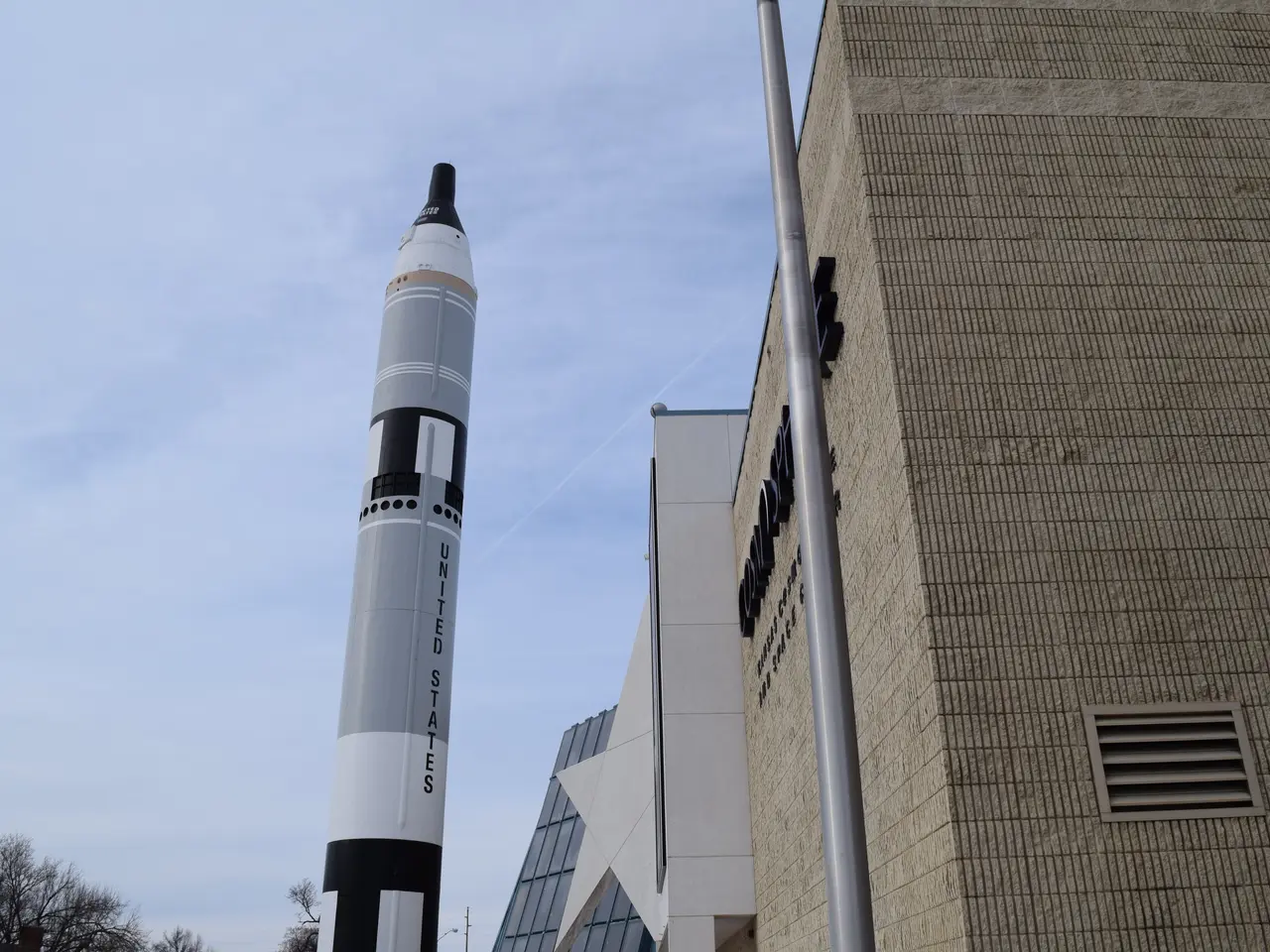Spaceflight innovator SpinLaunch targets launch – operating without the need for rocket fuel.
In the quest to make space travel more affordable, sustainable, and accessible, California-based startup SpinLaunch is pushing boundaries with its ground-breaking centrifugal launch system.
The company's innovative approach stands to offer a more environmentally friendly way of reaching space compared to traditional rockets, promising a 10-fold reduction in launch costs and a 70% reduction in the use of fuel.
SpinLaunch's ambition is to revolutionize the space industry by offering inexpensive, sustainable, and rapid access to space. To achieve this, they are allocating a significant portion of their engineering efforts towards building SpinLaunch-compatible spacecraft components and integrated satellite buses.
Their ground-based, electric-powered mass accelerator, named A-33, is a one-third scale model of the orbital version they hope to build. A-33 has performed impressively, with 10 tests since October 2021, including one on September 27, 2022, where SpinLaunch hurled a Test Launch Vehicle with demonstration payloads.
These suborbital tests have validated the survivability of satellites during the launch process, subjecting them to high-G forces, up to 10,000 G-forces, which is far beyond what conventional satellites can typically withstand.
Recently, SpinLaunch secured $30 million in funding to further develop its centrifugal satellite launch system. This investment supports its goal of reducing launch costs and emissions by 90% compared to traditional methods.
The company has also partnered with Kongsberg to build a Meridian Space broadband constellation, with the long-term plan to use its kinetic launch system for satellite maintenance and expansion.
Despite these advancements, SpinLaunch still needs to prove the orbital viability of its technology. The company plans to use its 100-meter Orbital Accelerator in Alaska, which is expected to begin operations in 2027, to achieve orbital velocities. This step is crucial for demonstrating the system's capability to reach low Earth orbit.
SpinLaunch faces challenges from established aerospace companies like SpaceX and Rocket Lab, while also dealing with risks such as unproven orbital capabilities and securing sufficient funding. However, if successful, its technology could significantly lower launch costs and emissions, potentially disrupting the satellite launch market.
Founded by Jonathan Yaney in 2014, SpinLaunch is led by a team of approximately 200 employees, including key contributors like Maxim Clarke, Ryan Hampton, Scott Laffler, Mark Sipperley, and David Wrenn. The company is planning to run more demonstration flights with A-33, followed by the construction of a full-scale orbital mass accelerator.
Ambitiously, SpinLaunch is hoping to perform its first orbital launch and potentially start building satellite constellations in 2026. If they succeed, it could mark a new era in space travel, making it more accessible and sustainable for all.
[1] Space.com - SpinLaunch's centrifugal launch system aims to be cheaper, faster, and greener [2] TechCrunch - SpinLaunch raises $30M to build a more environmentally friendly rocket [3] Ars Technica - SpinLaunch's centrifugal launch system aims to reduce costs and emissions
- SpinLaunch, a California-based startup, is developing technology that aims to revolutionize the space industry by offering a more environmentally friendly, cost-effective, and rapid means of reaching space.
- In the field of finance, SpinLaunch recently secured $30 million in funding to advance its ground-breaking centrifugal satellite launch system, which promises to reduce launch costs and emissions by a significant margin compared to traditional methods.
- In the realm of science and technology, SpinLaunch's ambition extends beyond its innovative launch system, as the company is also working on building SpinLaunch-compatible spacecraft components and integrated satellite buses.
- Looking towards the future, science fiction enthusiasts and space-and-astronomy aficionados alike may find SpinLaunch's ambitious plans intriguing, as the company aims to perform its first orbital launch and potentially start building satellite constellations in 2026, potentially ushering in a new era of sustainable space travel.




